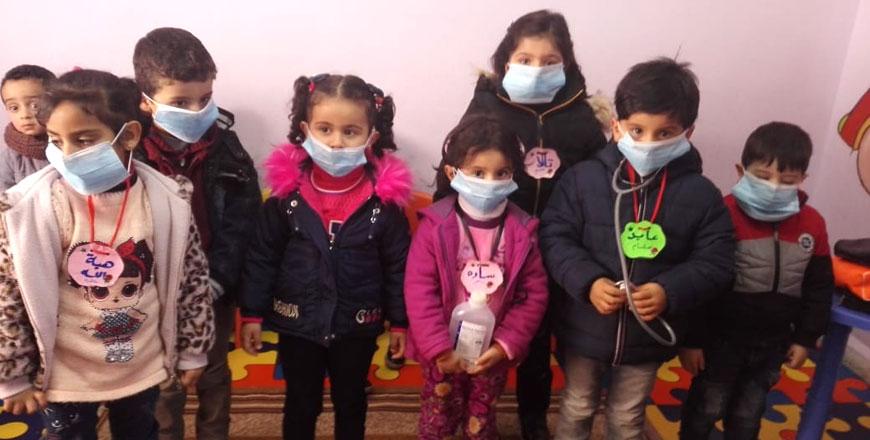- Local News
- Tue-2020-06-16 | 03:14 pm

Nurseries were among the establishments that remained closed in early May when the government allowed several economic sectors to resume work under health protocols.
On June 6, the Ministry of Social Development (MoSD) issued regulations under which daycare centres could reopen. These regulations include obliging all nursery workers to test negative for the coronavirus before returning to work.
However, women activists, parents and daycare owners have claimed that the government's restrictions are "tough, unrealistic and added additional burdens to their running costs and other financial strains”.
"Over 300 nurseries have resumed work since the government's decision to allow nurseries to reopen and we are constantly receiving requests from other establishments for permission to resume operations," Director of the Family and Protection Department at the MoSD Mahmoud Jbour told The Jordan Times on Monday.
The ministry official added that the "main concern” for the MoSD is the safety and security of the children, regardless of the cost.
"We realise that there are some financial costs that these entities will have to bear, but our priority is the safety of the approximately 50,000 children who need to be totally protected while at these establishments," Jbour stressed.
However, SADAQA Core Team Member Randa Naffa said that the number of opened daycare centres is "modest”, since there are around 1,450 nurseries in the Kingdom. She noted that the owners "are not content with the government's strict operational measures".
"We had a participatory process of gathering the input of the daycare owners to make sure that we covered all the issues related to the procedures set in place by the MoSD, since many of these procedures are considered unrealistic," Naffa told The Jordan Times.
She added that SADAQA sent a memo to the concerned officials to reconsider many of the strict measures imposed on daycare owners, calling for establishing a fund "to support these entities with their running costs and other financial obligations".
Meanwhile, Razan Fakhoury, a daycare owner, said that the government's condition to allow facilities to operate at only 50-per cent capacity is "adding a lot of financial burdens on us since we cannot receive all the children and also cannot allow all our employees back".
"Teachers want to resume work because they have families to feed, but we are not allowed to have all of them back, and at the same time we can only receive half the capacity of children. This is adding more financial burdens on us," Fakhoury told The Jordan Times.
Some of the regulations imposed by the government allow only working mothers to send their children to daycare centres, "which has angered other parents who want to send their children to our facilities", according to the daycare owner.
Journalist Nidine Nimri, a mother of three children, said that one of her children "managed to return to a daycare centre”. She noted her approval of the health procedures.
However, Nimri told The Jordan Times that the opening of the centres "is not enough”. Reopening summer camps and cultural centres, she said, would "allow our children to do something useful this summer".
"I feel that the officials are not taking decisions in favour of our children's interests… there is no need for all these complications," Nimri added.
Among the regulations issued by the ministry is the closing of an establishment for 17 days if a case of COVID-19 is discovered at that centre. Establishments are also required to perform weekly medical examinations on the children through a physician.
Pregnant employees are restricted from working during this period, according to the regulations.
Following the government's decision to gradually reopen certain establishments in May, SADAQA, Solidarity Is Global Institute and the Jordanian National Commission for Women have repeatedly called on the government to allow kindergartens and schools to begin operating so that working women do not lose their jobs because they must stay at home with their children.









